Health is Wealth ( Small Changes, Big Impact )
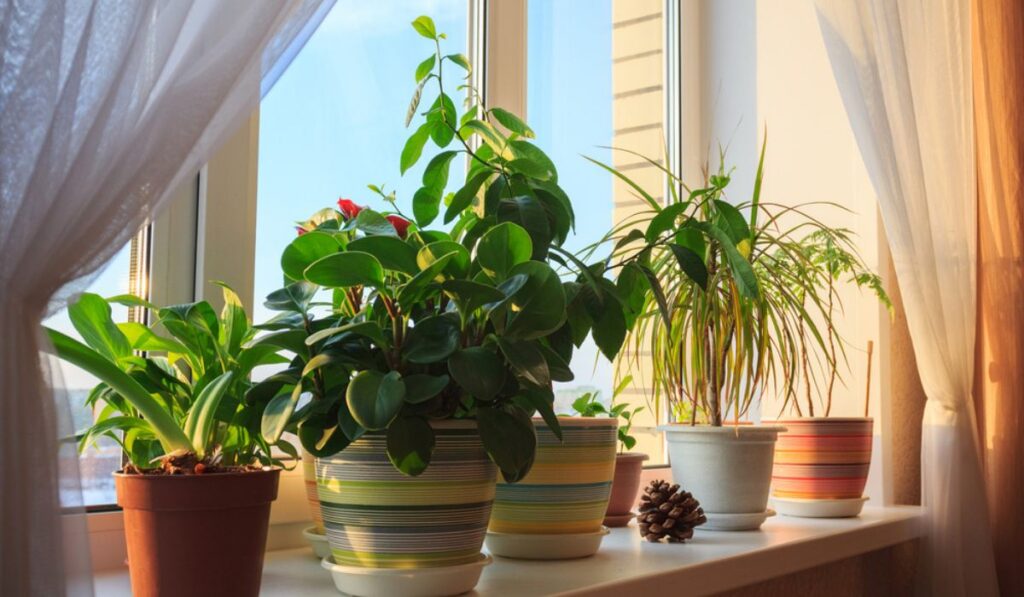
Nature and the surroundings have a deeper meaning. Plants are a part of this wonderful world or one of God’s lovely creations.
In school, we were taught by teachers about the life cycle of plants and how they play an important part in our surroundings. How each plant contributes to our overall health and fitness.
During the lockdown, everything was shut off. The shutdown had an extremely gloomy influence on the Earth’s atmosphere. I believe everyone noticed at the moment.
We can plainly feel the purity of the air at that time, as nature has been restored to its pristine state. Plants, trees, oceans, rivers, mountains and glaciers were all upgraded.
Plants are critical to life on Earth because they serve as the foundation of ecosystems and provide crucial nutrients and services that all living organisms require.
Photosynthesis is the process by which plants produce oxygen, the very breath of life for humans and countless other species, while also absorbing carbon dioxide and mitigating climate change by sequestering carbon.
They play an important role in regulating the water cycle, maintaining soil fertility, and preserving biodiversity by providing habitat and food for a wide variety of creatures.
Plants benefit human well-being by providing food, medicine, materials, and resources required for survival and economic growth. Furthermore, they provide visual beauty, cultural significance, and recreational activities, forging a strong bond with nature and enhancing our lives in several ways. Recognising the value of plants is crucial for promoting environmental stewardship, sustainable development, and the preservation of life on Earth.
Benefits of having plants at home
How indoor plants reduce health problems?
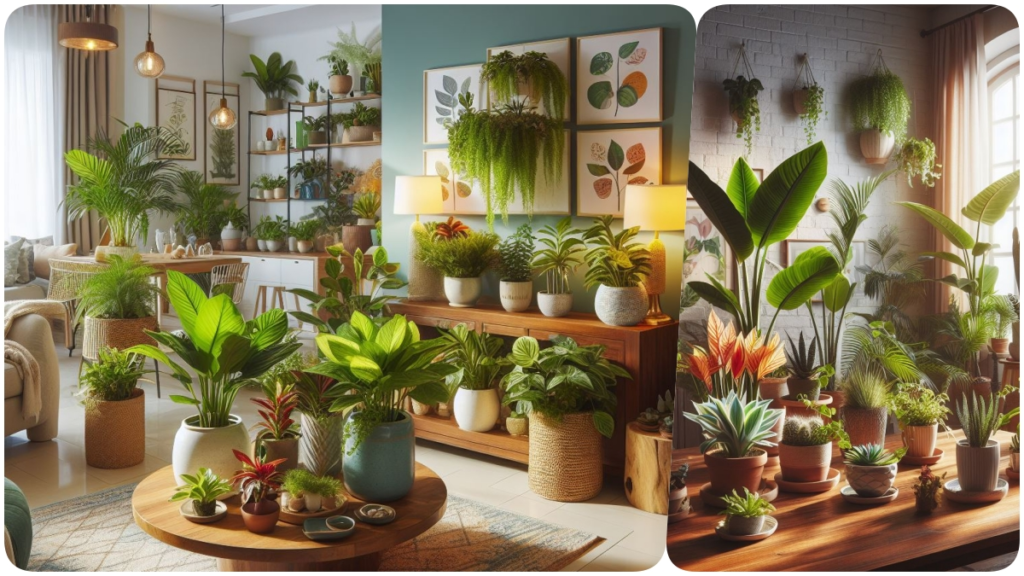
Indoor plants have been a centuries-old habit, and they were regarded to be the kingdom’s first purifiers; nature is more complex than we realise. They have played an important part in every culture on the planet since its inception, a life savour if I may use another term.
There were few robotic technology in ancient civilizations, which were thought to be the highest civilizations in terms of physical and cerebral ability. There were no advanced equipment or methods; instead, they learned and taught themselves.
As we move forward, plant demand has increased; global warming may be a major culprit, but there are many additional situations to consider. They make more of an impact on society than we previously realised.
Plants benefit human society in several ways, including providing basic resources, supporting livelihoods, enriching culture and sustaining life on Earth.
Food security
Plants produce the vast bulk of the world’s food supply, including fruits, vegetables, grains, legumes and nuts. Agriculture relies on plants for food production, ensuring global food security and feeding billions of people.
Nutrition and health
Nutrition and Health: Plant-based foods contain critical nutrients, vitamins and antioxidants that are necessary for human health and well-being. A diet high in fruits, vegetables, whole grains and legumes is connected with a lower risk of chronic diseases like heart disease, diabetes and cancer.
Benefits of having plants at home
Medicine and Pharmaceuticals
Many plants contain bioactive compounds with medicinal properties that have been used for centuries in traditional medicine. Plants serve as a source of drugs, pharmaceuticals and herbal remedies for treating various ailments and diseases.
Economic Development
Plants contribute to economic development and poverty alleviation through agriculture, forestry, horticulture and other industries. They provide employment, income and livelihoods for millions of people involved in farming, food production and plant-based industries.
Plants play an important role in preserving biodiversity, managing ecosystems, and reducing climate change. They contribute to the conservation of soil, water, and natural resources, as well as the reduction of carbon emissions and the maintenance of ecosystem services required for human survival.
Plants have cultural, spiritual and symbolic value in human cultures, influencing traditions, rituals and beliefs. They are utilised in religious ceremonies, festivals and cultural practices to instill a sense of identification, belonging and community.
Plants add beauty to landscapes, gardens, and urban settings, providing aesthetic enjoyment and recreational opportunities for people of all ages. Gardening, hiking, nature photography and botanical tourism are popular recreational activities that allow people to connect with plants and nature.
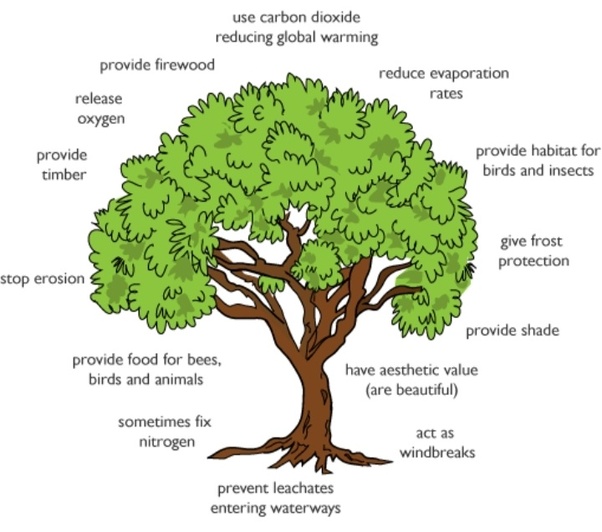
Innovation and technology
Plants drive innovation and technological advancement in a variety of industries, including agriculture, biotechnology and sustainable design. Plant genetics, biofuels, biomaterials and green technology research enhances scientific understanding and supports long-term solutions to global concerns.
Benefits of having plants at home
Instant Plants remedies for anxiety and depression
Herbal tea

Make a cup of herbal tea using herbs recognised for their calming and soothing characteristics, such as chamomile, lemon balm or passionflower. Sip the tea carefully, focusing on the warmth and aroma, allowing it to soothe your mind and body.
lavender

Inhaling the aroma of lavender essential oil or crushed lavender flowers can help reduce anxiety and increase calm. Aromatherapy using lavender is thought to stimulate the olfactory system, influencing mood and emotional reactions.
Lavender contains modest sedative effects that can improve sleep quality and duration. Lavender can assist to produce relaxation and quiet the mind, easing insomnia and sleep difficulties caused by anxiety and despair.
Better sleep can enhance mood and alleviate symptoms of sadness.
jasmine
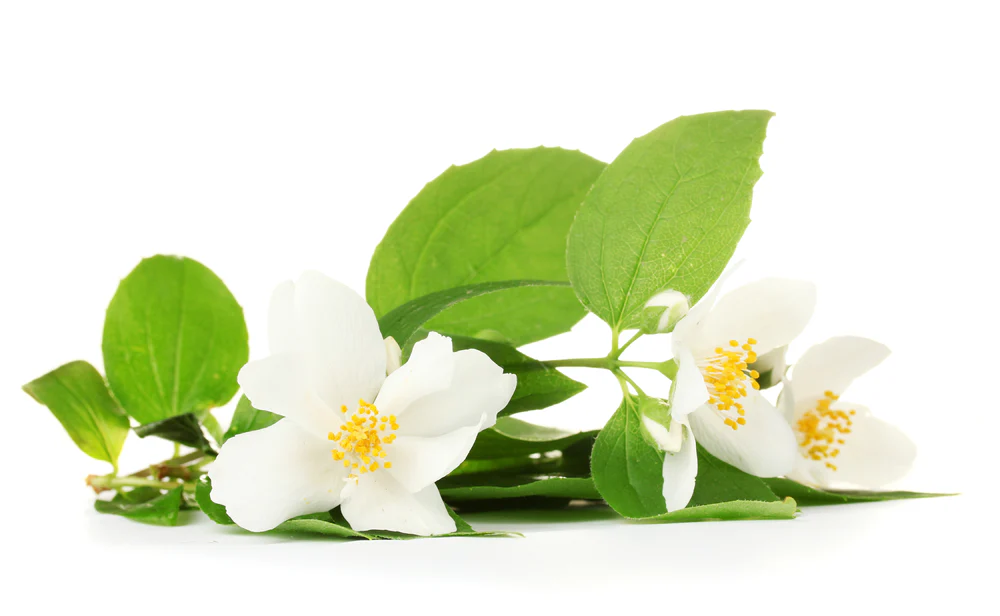
Jasmine’s pleasant and floral aroma has been demonstrated to have both relaxing and uplifting effects on mood. Inhaling the perfume of jasmine essential oil or jasmine flowers can cause the release of neurotransmitters such as serotonin, which can help alleviate anxiety and boost mood.
Some studies suggest that jasmine may have antidepressant properties by regulating neurotransmitter activity in the brain. Jasmine extract has been shown to enhance levels of neurotransmitters such as serotonin and dopamine, which are linked to mood control and feelings of happiness.
Benefits of having plants at home
lemon balm
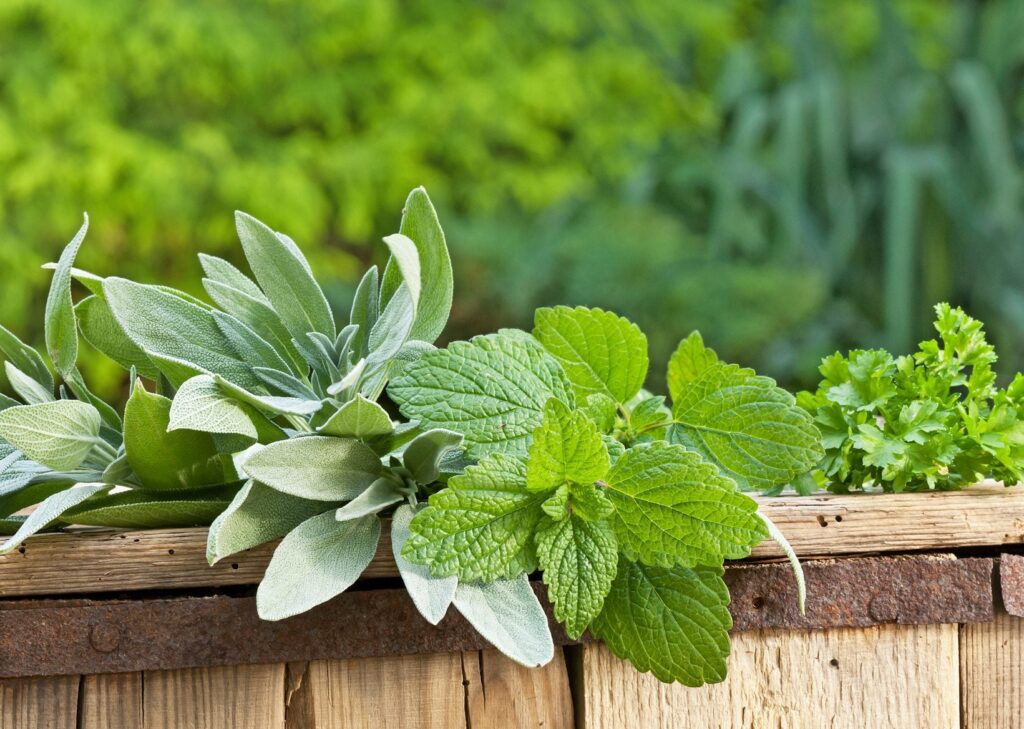
Lemon balm (Melissa officinalis) is a soothing herb known for its ability to alleviate anxiety and promote relaxation.
Lemon balm has long been utilised as a stress-relieving plant due to its relaxing effects. It can help lower cortisol levels, boosting relaxation and reducing the tension and agitation that comes with worry and stress.
rosemary
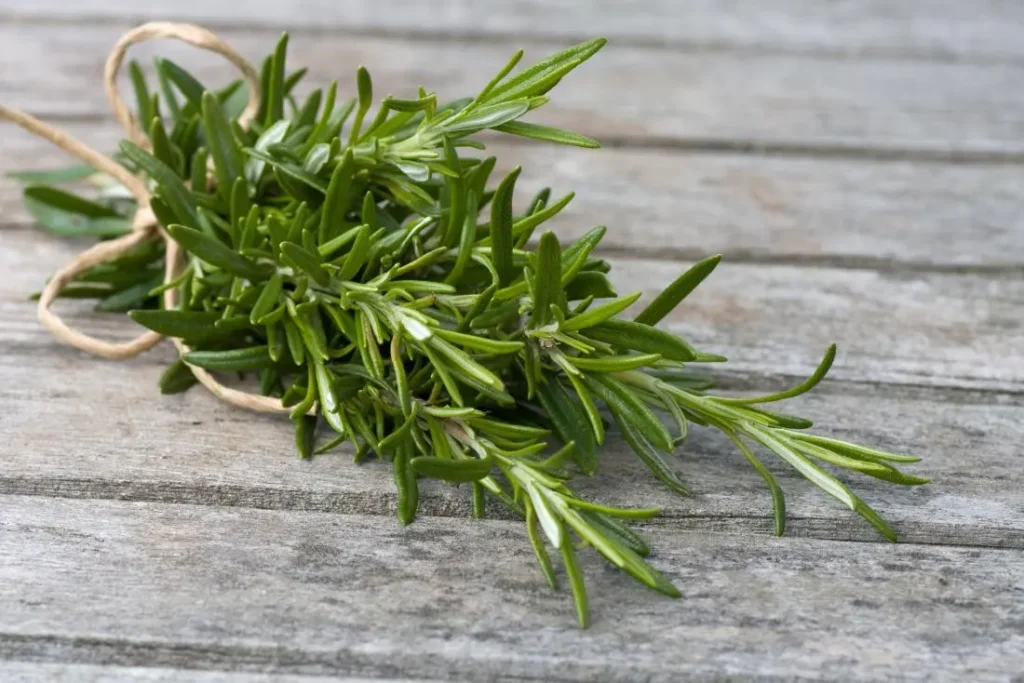
Rosemary (Rosmarinus officinalis) is a fragrant herb that may help reduce anxiety and despair. The aroma of rosemary has been demonstrated to have energising and mood-boosting properties. Inhaling rosemary essential oil or fresh rosemary leaves might increase mental clarity, attention, and alertness, hence alleviating anxiety and depression symptoms.
Rosemary has traditionally been used as an adaptogenic plant to assist the body in dealing with stress. It includes chemicals with antioxidant and anti-inflammatory effects, including as rosmarinic acid and carnosic acid, which can help reduce stress and protect the brain from stress-induced damage.
Peace lily
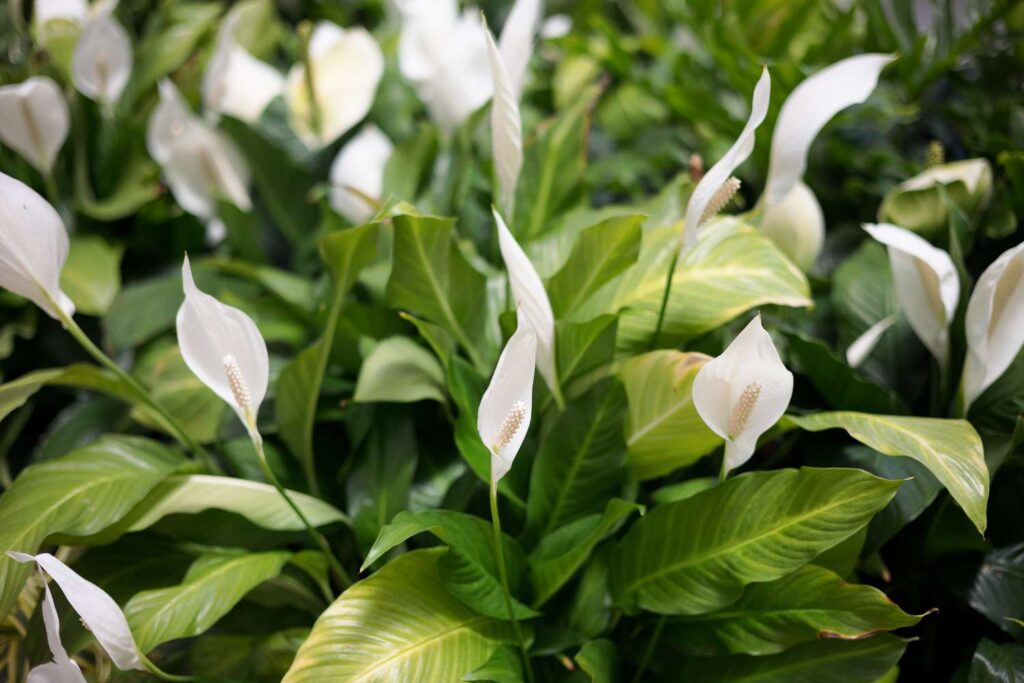
Peace lilies (Spathiphyllum spp.) are popular indoor plants noted for their beautiful leaves and white blossoms, but they may also help to reduce anxiety and despair.
Peace lilies are great air purifiers, eliminating typical indoor pollutants including formaldehyde, benzene, and trichloroethylene. Improving indoor air quality can lead to a healthier environment, which may help to alleviate symptoms of anxiety and sadness.
Peace lilies can help control indoor humidity by releasing moisture through their leaves. Maintaining proper humidity levels can boost comfort and respiratory health, perhaps lowering tension and anxiety caused by discomfort or respiratory difficulties.
Pingback: Are indoor plants good for health? – Healthymefityou